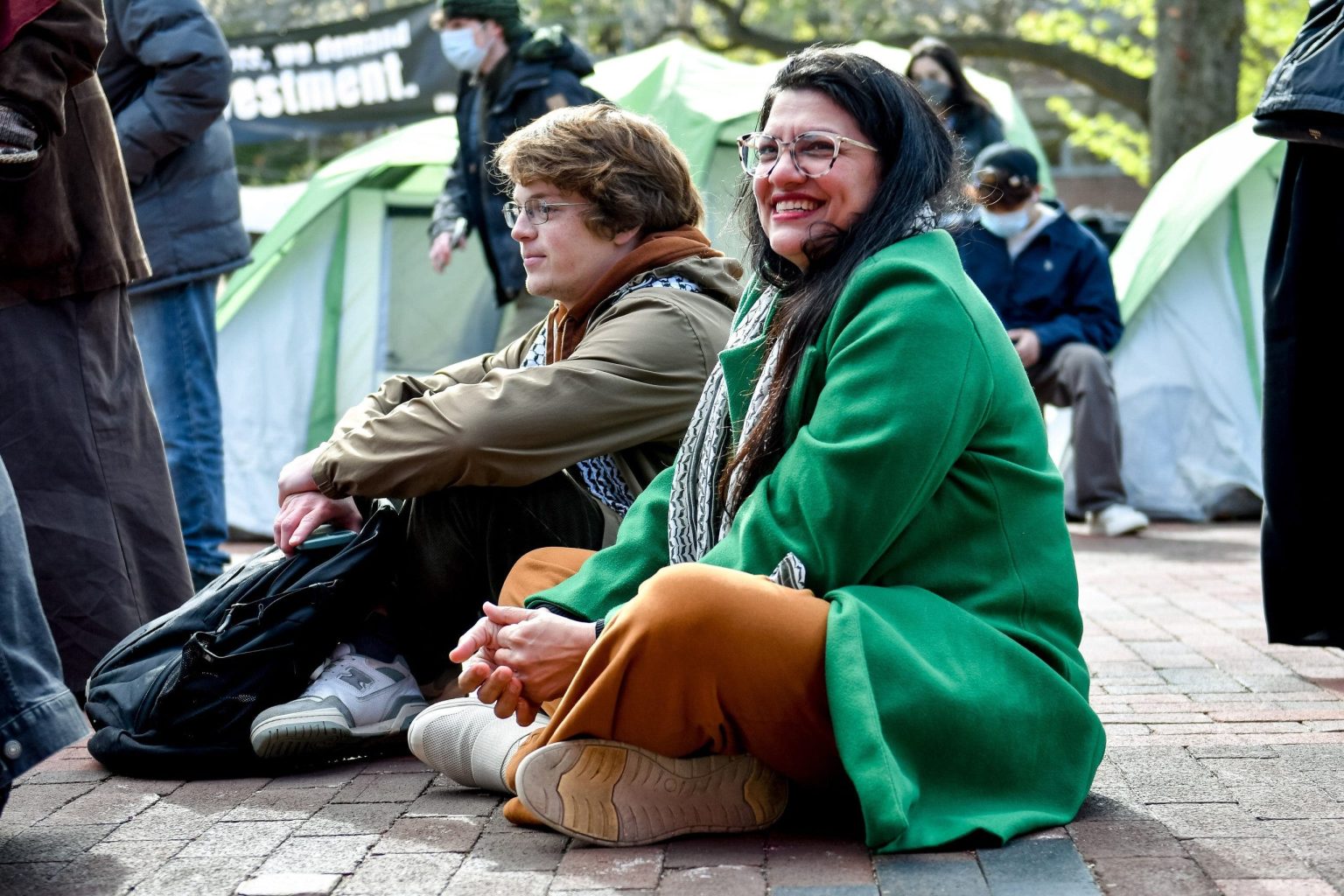A video featuring Rep. Rashida Tlaib surfaced on social media this week, showing her expressing support for anti-Jewish agitators at the University of Oregon. Tlaib praised the protesters for their activism and encouraged them to continue working towards what she believes is the right direction for the country. Tlaib has a history of sympathizing with anti-Semitic causes and has been critical of Israel in the past. She has also condemned universities for cracking down on protests against Israel, accusing the country of participating in genocide. However, Tlaib has failed to address the anti-Semitism displayed at some of these protests, including incidents where Jewish students have been targeted.
Tlaib’s message to the protesters comes in the midst of a wave of anti-Jewish protests at universities across the country. These protests have seen calls for an “intifada” and the destruction of Israel, resulting in thousands of arrests as police have had to intervene. The University of Oregon has become the site of a protest encampment set up by over 100 students who are demanding the university divest from Israel and take action against the war in Gaza. University officials have rejected these demands, citing violations of university policy, and negotiations with the protesters are ongoing with no clear resolution in sight.
While Tlaib has shown solidarity with the anti-Jewish protests at the University of Oregon, she has remained silent on the issue of anti-Semitism within these movements. Despite her concerns over the response to student protests on campus, she has not addressed the targeting of Jewish students or the calls for violence against Israel. Tlaib’s refusal to acknowledge the anti-Semitism present at these protests has drawn criticism, especially as she participated in a protest at the University of Michigan where similar sentiments were expressed. The video featuring Tlaib’s message to the protesters has fueled further debate over her stance on anti-Jewish activism and its implications.
The video featuring Tlaib has sparked controversy and raised questions about her position on anti-Semitism and protests against Israel. Tlaib has been vocal in her support for anti-Jewish causes, condemning Israel for its actions in Gaza and accusing the country of genocide. However, her silence on the anti-Semitism displayed at these protests has drawn criticism from those who believe she should be more vocal in condemning such behavior. As the protests at the University of Oregon continue and negotiations between the university and the protesters remain ongoing, Tlaib’s message to the agitators has further fueled the debate over her stance on anti-Semitic activism and its impact on the broader Jewish community.


